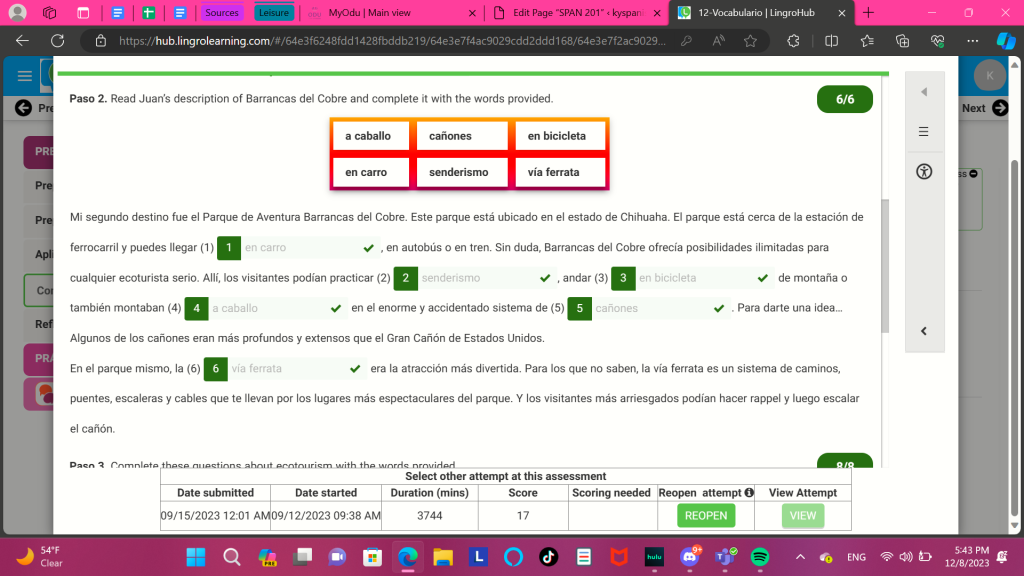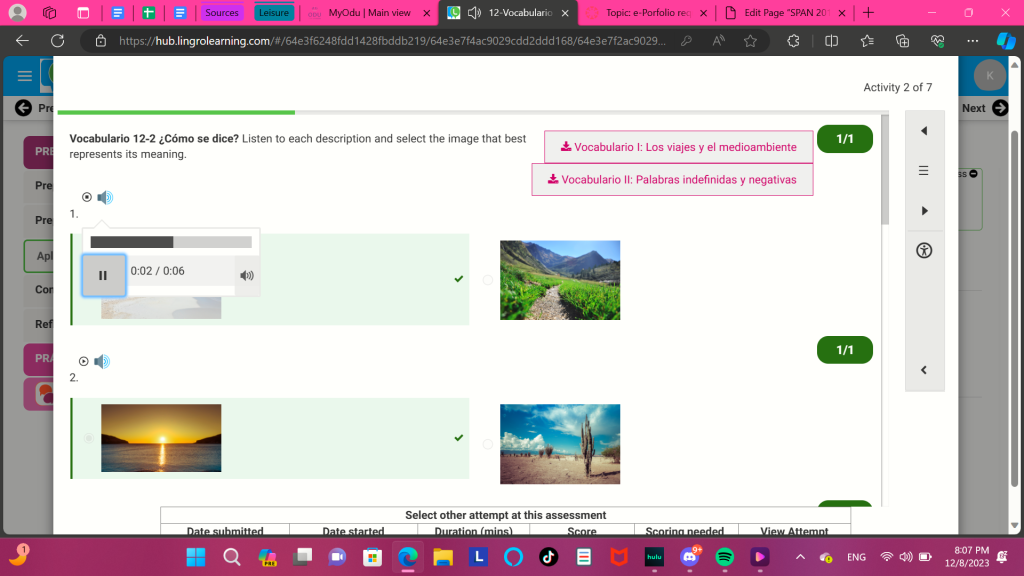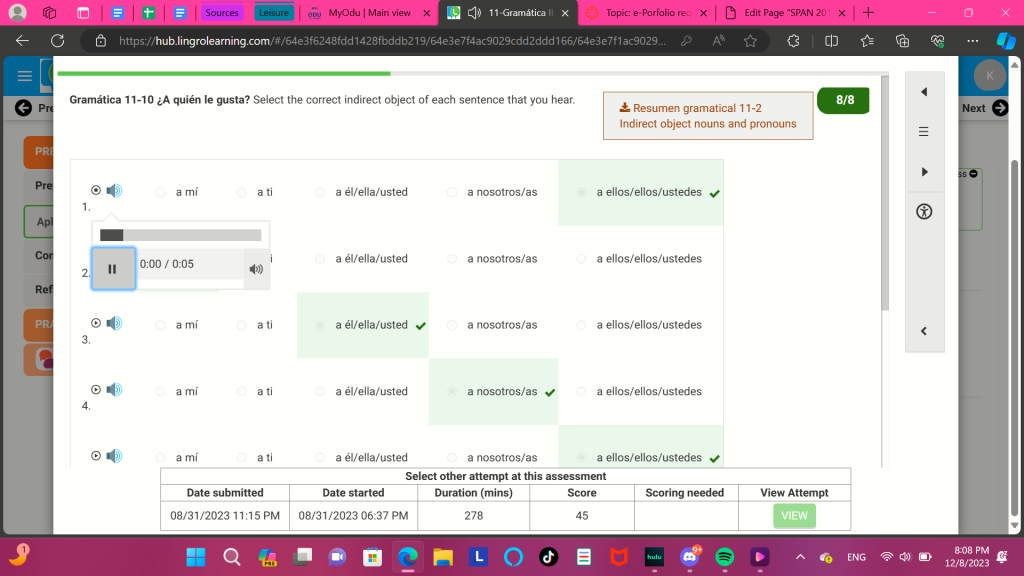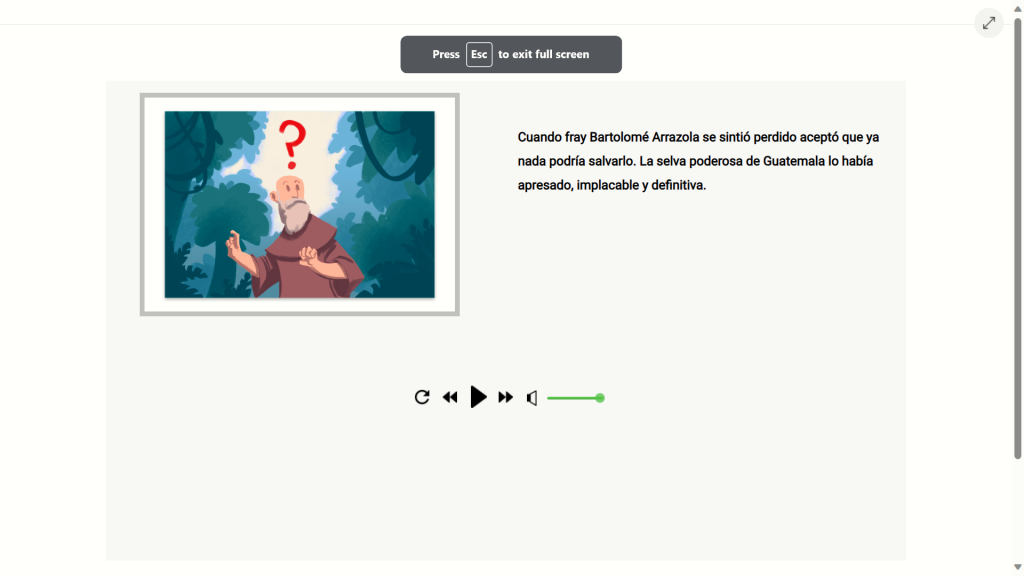Exploring Culture
Some practices that helped me gain understanding of cultural perspectives were actually the assignments within our Contraseña textbook. Within the textbook we would learn about various topics. These topics included immigration/emigration, art, culture, stories, and even the environment. Learning about all these different things really helped me to know more about Hispanic/Latin American culture and how life is like in their countries.
I never really had an stereotypes or misconceptions about Hispanic culture. Although, there is a big difference between the United States and countries in Latin America. When we were learning about nature and the environment, I realize how People in Latin America take preservation more seriously. They take more actions to help the environment then we do here in the U.S. I think the U.S. should take notes. I bring this up to show because many Americans have the misconception that other counties are worse off but they actually are better than us in some respects.

Engaging in Communities
I feel it’s very important to engage with your immediate community so you can be around people similar to you and that have that understanding and empathy. As well as engaging with the global community it’s important to know about what’s going on in the world, and how you can help people around the world. Me personally I engaged with the global community by spreading awareness on certain issues that are going on in different countries as well as my own. For example, there is so many genocides happening across the world in countries like Palestine, Congo, Sudan, Yemen and even more.
Interpersonal Communication
Throughout the semester we’ve had two TalkAbroad conversations in the class. As well as completing videos for a couple of assignments. During TalkAbroad we were communicating with people from Spanish-speaking countries. My partner was from El Salvador, and I actually had worked with her the previous semester.
These assignments definitely help me grow as someone learning a foreign language. It’s one thing to write it but hearing it over and over and listening to people talk helps retain the information. Engaging in conversation with someone who is a native Spanish speaking is very beneficial because you can learn from the. Throughout Talk Abroad I’ve learned new words from the partners I’ve worked with and things about their culture. I do tend to be very nervous when it comes to speaking to strangers so I may not be fully prepared when it comes to TalkAbroad. In order to do better, I should prepare more time in advance.
Presentational Speaking
As mentioned, before we have done two TalkAbroad conversations in the classroom. The conversation we’re related to different topics we learned in class. These topics ranged from immigration to clothes.
I feel I may not have done as well as I could on the TalkAbroads because I was somewhat unprepared. This semester has been pretty difficult, and I’ve had little time for things. I should try to make the time if I can, to be more prepared with questions and answers during the conversation. Even though I may not have done as well as I wanted to its good practice either way because I can make myself familiar with the language. I sadly cannot upload my TalkAbroad conversation as it’s saying the file is not supported.
Presentational Writing
Some written assignments that we’ve completed this semester would be our projects or ‘Proyectos.’ These projects would be assigned in our Contraseña textbook for us to submit our final draft in there typed. These projects we worked on this semester ranged from “Qué le ropa recomiendas”,”La historia de Finita” and our own microcuentos or short stories.
I feel that these were assignments were honestly a struggle at times. I don’t know as many filler words or transition words in Spanish as I do in English. Due to this, when it comes to building sentences, I struggle with how to form it. For example, the way I just typed that previous sentence. I wouldn’t be able to formulate it as well in Spanish because I don’t know or forget words like “it” or “to” in Spanish. To improve I think I should start watching shows in Spanish and studying the material so i can familiarize myself with the language.
Interpretive Listening
When it comes to listening activities, we had quite a few in Contraseña. These activities would consist of us listening to audios and selecting the correct answer to that audio.

We’ve listened to different things about relationships, texting, pronunciation of words. These activities are very helpful to me because hearing how certain things are said aids in my understanding for how the language works. For example, two l’s together is pronounced as “y” or how “j’s” and “g’s” are pronounced as H. As a beginner in the language, that is difficult to understand. Although, seeing the words and then hearing its pronunciation, helps me know how to write and speak better.

Interpretive Reading
In this class we actually did read a short story. It was a story called ‘El Eclipse’. This story was to give us an example of a popular story based off of events. We actually created our own short stories after this unit.
In all honesty, writing our own short story was the hardest assignment for me. It wasn’t necessarily created the short story, but the story had to be based on actual historical event. We also had to reach a word count which was a little difficult since I struggle with building certain sentences in Spanish. Due to lack of time, I wasn’t able to research one and ended up just creating an original story. This definitely made me want to become a stronger writer in Spanish so I wouldn’t have to struggle like that again.

